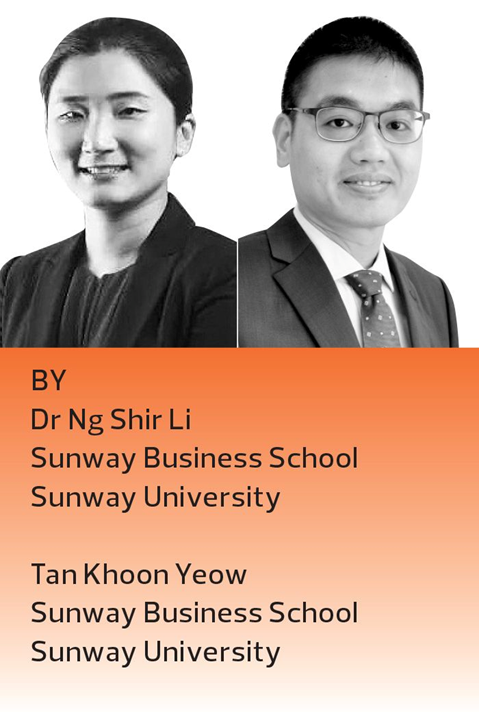Johor Charges Ahead with RM99 Bil in Game-Changing JS-SEZ Investments
- Jul 18, 2025
- 4 min read

Johor is forging ahead with nearly RM99 billion in realised and upcoming investments under the Johor-Singapore Special Economic Zone (JS-SEZ), as the state government unveiled ambitious proposals aimed at future-proofing the region's economic landscape.
At the inaugural JS-SEZ Business and Investment Forum, Johor Menteri Besar Datuk Onn Hafiz Ghazi revealed that Johor had secured RM48.5 billion in approved investments in 2024, with an additional RM27.4 billion recorded in the first quarter of 2025.
Another RM23 billion worth of projects are currently in the pipeline.
"These figures reflect the deep trust that investors place in Johor. We are serious, responsive, and ready," he told the gathering of nearly 1,000 senior policymakers and business leaders.
The forum, themed "JS-SEZ: Bridging Economies, Strengthening Supply Chains," aims to position the zone as a premier investment destination and an essential node in the global supply chain, focusing on high-value sectors such as advanced manufacturing, green technology, agrotech, and the digital economy.
Also in attendance were Singapore's Deputy Prime Minister and Minister for Trade and Industry Gan Kim Yong and Malaysia's Minister of Investment, Trade and Industry Tengku Datuk Seri Zafrul Abdul Aziz, underscoring the strategic importance of the Malaysia-Singapore bilateral initiative.
Onn Hafiz called the JS-SEZ a "game-changer" that will position Johor as a regional hub for innovation, talent, and investment.
"The JS-SEZ allows Johor and Singapore to unlock our economic complementarities and attract green, high-tech investments that create better-paying jobs and drive sustainable growth," he said in his keynote address.
To accelerate investment facilitation, Johor has launched two key initiatives: the Invest Malaysia Facilitation Centre – Johor (IMFC-J) and the Johor Super Lane (JSL). These reforms have shortened the processing time for priority investments from 24 months to just over a year.
Companies already benefitting from these fast-track mechanisms include Princeton Digital Group, Wiwynn Technology, Olam/Markono, and Mayora, with 42 high-impact projects currently in the accelerated pipeline.
Onn Hafiz also praised Singapore's steady commitment to the JS-SEZ, quoting Prime Minister Lawrence Wong's call to treat Johor and Singapore not as standalone hubs but as "an ecosystem that complements one another".
In a light-hearted moment, Onn Hafiz jokingly suggested Tengku Zafrul should be "snatched up" by Singaporean political parties, praising him as "capable, hardworking, handsome and smart."
However, he quickly pivoted to a serious note, warning that political instability, as seen in Malaysia from 2018 to 2022, remains a key risk.
He called for policy continuity and cross-border alignment, urging both nations to turn challenges—such as tariff disputes—into opportunities for building a resilient and interconnected economy.
"Let us move forward with one vision, two nations, and shared prosperity," he added.
To further solidify the JS-SEZ's value proposition, Johor unveiled two bold new proposals: the creation of a Regulatory Sandbox and an Asean Industrial Park that could reshape cross-border investment dynamics and fast-track innovation.
"These proposals are not blue-sky ideas. They are grounded, strategic moves to make JS-SEZ the most competitive and compelling investment destination in the region," he said.
"These proposals are designed to future-proof our economies amid global uncertainties. They signal Johor's seriousness in pushing the envelope to make JS-SEZ a flagship model of regional economic cooperation," Onn Hafiz said.
The Regulatory Sandbox will be piloted in high-potential zones such as Ibrahim Technopolis (IBTEC), Ladang Air Manis in Kulai, and Forest City.
The sandbox will offer temporary regulatory exemptions to enable testing of innovative technologies, policies and business models.
Focused on emerging sectors such as fintech, smart logistics, renewable energy and autonomous technologies, the sandbox will target high-impact projects led by companies, universities and cross-border consortiums.
"This supervised, flexible environment allows faster development cycles and real-world policy experimentation. It is about speed, scale and synergy," he said, adding that governance will involve key state and federal agencies through the Invest Malaysia Facilitation Centre – Johor (IMFC-J).
The Asean Industrial Park, meanwhile, is aimed at attracting strategic investments from member countries of the Regional Comprehensive Economic Partnership (RCEP).
"Tailored for high-value sectors like advanced manufacturing, green tech and the digital economy, the park will offer incentives such as tax breaks, simplified talent mobility, and eased fund repatriation," he said.
Onn Hafiz added that the park will be rolled out in phases, starting with a pilot programme and expanding based on performance.
Public-Private Partnerships (PPPs) will be a core feature in developing infrastructure and services.
"This is about positioning the JS-SEZ as Southeast Asia's preferred destination for RCEP-related investment and creating quality jobs for the region."
He also pledged to co-chair monthly coordination meetings with Tengku Zafrul to maintain policy momentum and alignment.
Tengku Zafrul reaffirmed the strategic significance of the zone, stating that the JS-SEZ is critical to ASEAN's evolving economic framework.
"As global trade realigns, Malaysia and Singapore are deepening policy, infrastructure, and supply chain linkages to strengthen regional resilience.
"JS-SEZ is the prototype for what Asean needs – agility, stamina, and cross-border cooperation," he said.
The forum featured three high-level panel sessions focused on talent mobility, digital transformation, and wealth creation within the Malaysia-Singapore nexus.
Two memoranda of understanding (MoUs) were also exchanged: One between Pertamina Energy Terminal and the Port of Tanjung Langsat, targeting a green bunkering collaboration with a projected three million metric tonnes in trading volume by 2025.
Another between Maybank and Perbadanan Usahawan Johor (PUJB) to establish a financing framework supporting SMEs within the zone.
MIDA chief executive officer Datuk Sikh Shamsul Ibrahim described the JS-SEZ as more than an economic corridor—calling it a "blueprint for future cross-border ecosystems."
"We're witnessing a rare convergence of policy, capital, and innovation. MIDA is committed to facilitating end-to-end investment success in the zone," he said.

-01.jpg)


